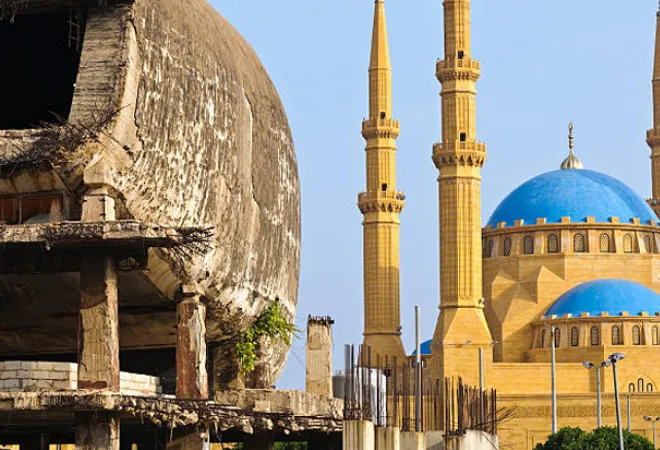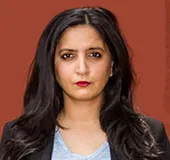
Lebanon’s capital, Beirut, resembled a war zone in October as clashes unfolded between Hezbollah’s Shi‘ite supporters and unknown armed snipers in a Christian-dominated neighbourhood.
On October 14, Hezbollah’s supporters gathered in front of Palais de Justice—Beirut’s central court—to protest against Judge Tarek Bitar who is the second judge investigating the Beirut port blast which killed more than 200 people, injured thousands and turned hundreds of thousands homeless last year.
Hezbollah’s Chief Hassan Nasrallah has accused Judge Bitar of deliberately guiding the investigation in a manner that finds the group culpable. “The targeting is clear, you are picking certain officials and certain people,”
Nasrallah said in televised comments. “The bias is clear.”
Hezbollah’s Chief Hassan Nasrallah has accused Judge Bitar of deliberately guiding the investigation in a manner that finds the group culpable.
Nasrallah’s men allegedly
threatened the judge a few days before they organised the protest demanding his removal. But soon after the protest began, the protestors came under fire from snipers hiding atop residential buildings. Within minutes Hezbollah’s masked fighters carrying AK-47s and with RPGs mounted on their shoulders, fired back at the buildings.
Children cowered under desks, commuters took cover behind cars and residents lied on the floor to escape the fire. By the end of the day,
seven people were dead including a woman sitting at her home who was hit by a stray bullet.
More than 30 people were injured.
Hezbollah accused the Lebanese Forces, the second-largest Christian-based party, of deputing its snipers to unleash chaos and provoke a civil war. The Lebanese Forces now claims to be secular but it had a militia in the past which was accused of carrying out brutal massacres. Hezbollah and its patron,
Iran, allege that it has ties with their arch-enemy Israel and is supported by the United States of America.
“At about 10:45 a.m., demonstrators who were taking part in a peaceful rally were heading towards the courthouse to condemn the politicisation of the investigation into the explosion at the port of Beirut,” Hezbollah and its Shi‘ite ally, the Amal Movement, said in a
joint statement. They, “were the target of sniper fire from the roofs of buildings when they reached the Tayyoune roundabout. Heavy gunfire ensued, killing several martyrs.”
Seven people were dead including a woman sitting at her home who was hit by a stray bullet. More than 30 people were injured.
But the leader of the Lebanese Forces, Samir Geagea, denied responsibility and accused Hezbollah of invading off-limit neighbourhoods instead. On October 27, Geagea was summoned by the military intelligence but he
failed to appear. He said he would offer his testimony only if Hezbollah’s Chief Nasrallah, too, was questioned legally.
In the aftermath of the clashes, 68 people have been arrested for rioting, murder, attempted murder, and destroying private and public property.
The violence ended after four-long hours of shooting on the capital’s streets but it reignited sectarian tensions and revived fears of a civil war. Lebanon was engulfed in a 15-year-long civil war between 1975-1990 which ripped apart the social fabric and left more than a hundred thousand dead—many still lying in unknown, unmarked graves.
Lebanon’s President Michel Aoun said that all those responsible for the recent clashes would be held accountable. He is an ally of Hezbollah, however.
Most are terrified of an armed conflict but fear that their political elite might entangle them once again in sectarian clashes to protect themselves from scrutiny and to escape accountability.
“It took us back to the days that we said we would never forget and never repeat,”
Aoun said. “What happened in Beirut today, the scenes of shooting and shelling and the dispersion of armed groups brought us back to the memory and images of the civil war, which we strongly reject and condemn,”
added former Prime Minister Saad Hariri. “We join Lebanese authorities in their call for calm, their calls for a de-escalation of tensions,” State Department spokesman
Ned Price told the press.
Lebanon is mired in myriad crises and the Lebanese are struggling to make ends meet. Most are terrified of an armed conflict but fear that their political elite might entangle them once again in sectarian clashes to protect themselves from scrutiny and to escape accountability.
“Lebanon is going through a difficult phase, not an easy one. We are like a patient in front of the emergency room,”
Prime Minister Mikati said.“We have a lot of stages after that to complete recovery.”
An undeclared truce has held but no one is sure if it is sustainable.
The views expressed above belong to the author(s). ORF research and analyses now available on Telegram! Click here to access our curated content — blogs, longforms and interviews.



 Lebanon’s capital, Beirut, resembled a war zone in October as clashes unfolded between Hezbollah’s Shi‘ite supporters and unknown armed snipers in a Christian-dominated neighbourhood.
On October 14, Hezbollah’s supporters gathered in front of Palais de Justice—Beirut’s central court—to protest against Judge Tarek Bitar who is the second judge investigating the Beirut port blast which killed more than 200 people, injured thousands and turned hundreds of thousands homeless last year.
Hezbollah’s Chief Hassan Nasrallah has accused Judge Bitar of deliberately guiding the investigation in a manner that finds the group culpable. “The targeting is clear, you are picking certain officials and certain people,”
Lebanon’s capital, Beirut, resembled a war zone in October as clashes unfolded between Hezbollah’s Shi‘ite supporters and unknown armed snipers in a Christian-dominated neighbourhood.
On October 14, Hezbollah’s supporters gathered in front of Palais de Justice—Beirut’s central court—to protest against Judge Tarek Bitar who is the second judge investigating the Beirut port blast which killed more than 200 people, injured thousands and turned hundreds of thousands homeless last year.
Hezbollah’s Chief Hassan Nasrallah has accused Judge Bitar of deliberately guiding the investigation in a manner that finds the group culpable. “The targeting is clear, you are picking certain officials and certain people,”  PREV
PREV


